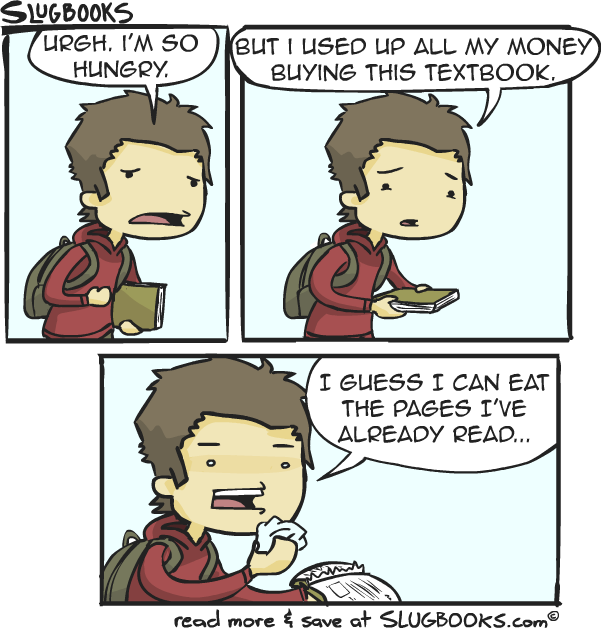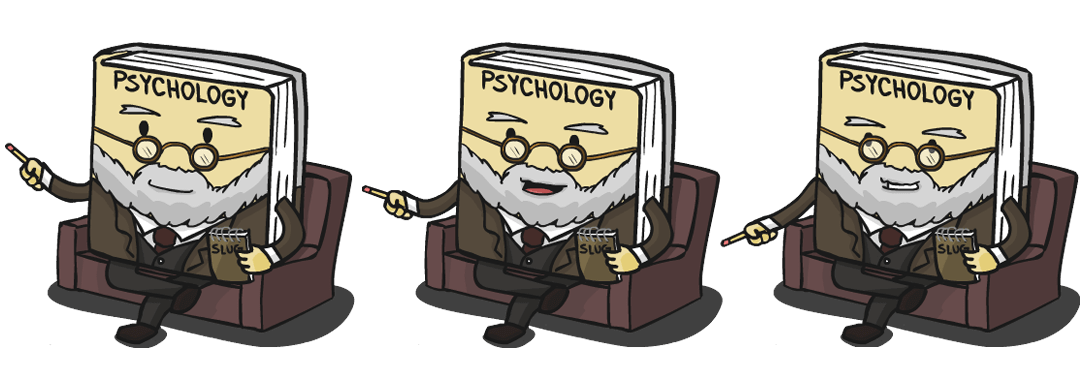Everything New Undergraduate Students
Need to Know About College Textbooks

High school students are rarely required to purchase books, so when making the jump into college, purchasing books can be an overwhelming experience for incoming freshmen. The situation students are used to might be different depending on whether the high school is public or private, and whether the courses are standard or AP. While most students at private high schools are exposed to having to purchase textbooks for courses on their own, at public high schools, students are often not subjected to that, because the school district often provides them. The books that high schools purchase are often substantially overpriced due to government regulations requiring that school purchase books from pre-approved vendors - forcing the school to purchase the books from a handful of retailers or directly from the publisher, instead of allowing them to seek out the cheapest source. Because of the bureaucratic requirements, high schools aren't able to compare prices on Amazon and buy the cheapest copy, with the students and their parents having limited insight into the process.
High school graduates beginning college realize very quickly that textbooks are expensive. Unlike in high school, when the government or parents paid for everything, textbook costs are now the responsibility of individual students. Most high schools do not have bookstores, so students who were previously required to purchase their own college books in high school are at an advantage in college because they are usually used to searching online for their textbooks.
All incoming college freshmen need to understand one key fact about college textbooks: there are many different places online where they can buy the exact same books as ones that the bookstore is selling. Contrary to what the bookstore will have students believe, there are plenty of online locations you can buy from, which are often considerably cheaper.

Common Bookstore Traps
Watch out for these two traps when you are at the official university store. In an effort to stop students from seeking out much more affordable prices online, bookstores will often do these two things:
1) Instead of offering one price for a cheap used books, the bookstore will offer many different prices for different purchasing mechanics of the same book. For instance, they offer purchase or rental prices for a new, used, or digital textbook. Consumers who see 4+ prices often assume that they are saving money by picking the cheapest price - without realizing that each of those options are overpriced relative to what they could be purchased for online.
2) Price-matching Schemes. Bookstores will sometimes promise their customers that they will match the price of any online price*. That asterisk often eliminates 3rd party marketplaces (which is where most of the cheap textbooks are made available on sites like Amazon and eBay). If you are going to take the bookstore up on their "Price Match Guarantee," make sure that the price they are matching is eligible.
Shipping is not an issue. One common reason that people pay a premium when they buy textbooks at the local bookstore (versus looking at internet sellers) is that there might be a shipping delay. Students might be concerned that they need their books immediately, and that shipping will take a long time. THESE ARE FALSE CONCERNS. First of all, marketplace sellers have been shipping things on the Internet for years; postal systems are efficient enough these days where you can be sure you will get the book in time. Additionally, due to the period at the beginning of the semester where students are allowed to add or drop classes, most professors will not assign mandatory reading until the first week of class has occurred, meaning there is even more time for you to ensure that you receive the college textbooks that were ordered.
